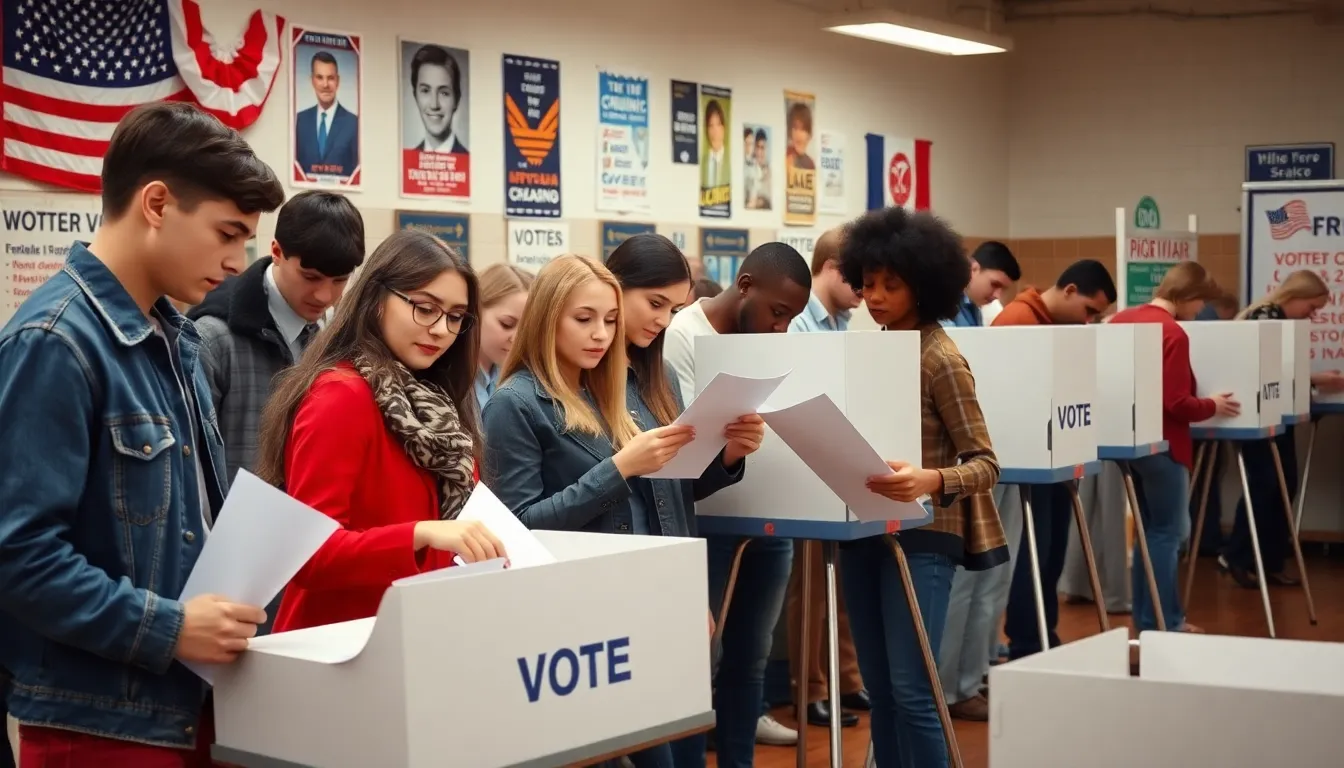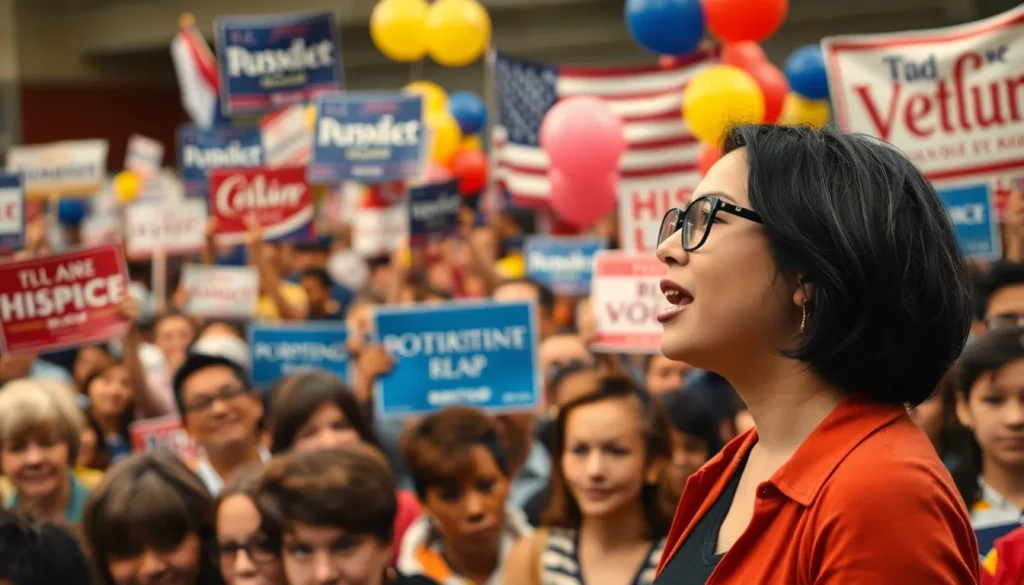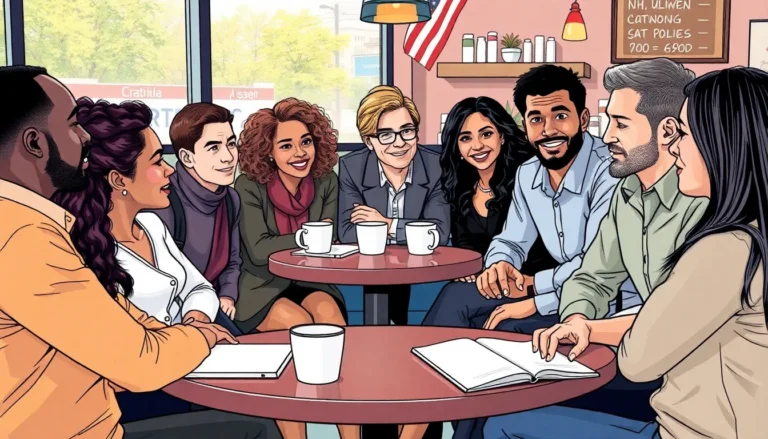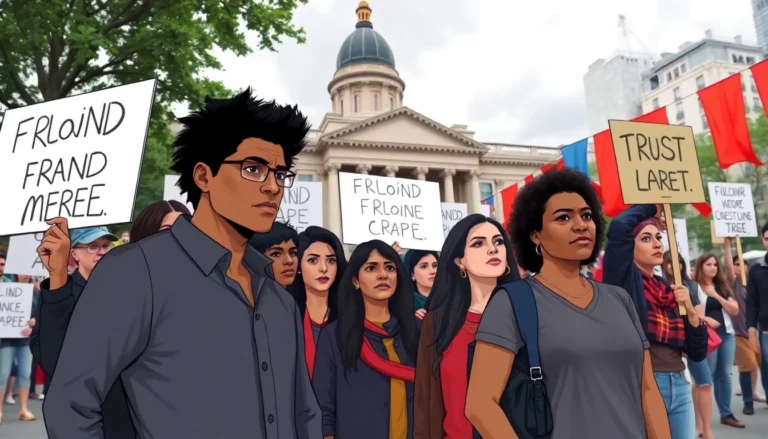Political events shape the world like a toddler with a crayon in a fine art gallery. They can be messy unpredictable and downright hilarious at times. From heated debates that resemble a game of dodgeball to rallies that feel more like rock concerts, these events capture attention and spark conversations.
Understanding the dynamics of political events is crucial for anyone who wants to stay informed and engaged. Whether it’s a local election or a global summit there’s always something happening that could change the course of history. So buckle up and get ready to dive into the whirlwind of politics where every day brings a new headline and a fresh dose of drama.
Table of Contents
ToggleOverview of Political Events
Political events consist of various activities such as rallies, debates, and elections, shaping public opinion and influencing policy. These gatherings often serve as platforms for candidates to present their ideas and address voter concerns. Media coverage plays a crucial role in amplifying the impact of these events, providing coverage that informs the public and sparks conversations.
Historical context is essential for understanding current political dynamics. Events from the past often resonate with today’s challenges, revealing patterns that help citizens gauge future outcomes. Notable cases include how movements for civil rights impacted legislation, reflecting societal shifts over decades.
Local and global political activities differ in scope but share a common purpose—to engage citizens in governance. Local council meetings or town halls focus on community issues, fostering grassroots involvement. Conversely, international summits and conferences address global matters, such as climate change and trade agreements, requiring collaborative approaches.
Political events can also ignite social movements. For instance, protests against governmental policies often arise from discontent, mobilizing citizens and affecting change. In recent years, issues like climate action and social justice have galvanized large groups to demand accountability and reform.
Statistical analysis shows a correlation between political event engagement and voter turnout. Research indicates a 15% increase in voter participation linked to high-profile events, emphasizing their significance in the democratic process. Overall, political events maintain a vital role in shaping public discourse and influencing the trajectory of governance.
Notable Political Events of 2023

Significant political events emerged in 2023, shaping public discourse and influencing governance worldwide. Key instances include national elections and international summits that attracted global attention.
National Elections
Multiple countries conducted national elections in 2023, leading to shifts in political power. In the United States, midterm elections saw a record voter turnout of 55%, reflecting heightened public engagement. Italy’s parliamentary elections resulted in a coalition government, marking a decisive political shift. Voter trends indicated increased participation among young citizens, enhancing the diversity of political representation. The electoral landscape shifted further in Brazil, where the newly elected president focused on environmental policies, capturing the global spotlight.
International Summits
International summits in 2023 addressed pressing global issues, including climate change and economic stability. The G20 summit gathered leaders from 19 countries and the EU, emphasizing collective action towards sustainable development. Key discussions prompted commitments to reduce carbon emissions by 40% by 2030. Additionally, the UN General Assembly focused on global peace initiatives, striving for inclusive dialogue among nations. These summits catalyzed partnerships aimed at fostering international cooperation and created frameworks for addressing global challenges.
Key Themes in Political Events
Political events reflect key themes that shape societal dynamics. Understanding these themes enhances awareness of current trends.
Political Polarization
Political polarization creates stark divisions among parties and ideologies. Such divisions result in heightened tensions, limiting collaboration on critical issues. As more citizens align with extreme positions, constructive dialogue often suffers. Recent elections illustrate this trend, with significant partisan divides affecting voter behavior. For instance, the 2022 U.S. midterms showcased how ideological rifts can influence turnout and campaign strategies. Surveys indicate that around 70% of Americans feel political debates have become more contentious. Political polarization affects policy-making and public trust, making it essential to address these divisions for effective governance.
Globalization and Its Impact
Globalization significantly influences political events, connecting nations and cultures. Economic ties encourage cooperation, but they also create friction in local politics. Increased migration shapes public discussions around citizenship and national identity. Recent economic summits, such as the G20, highlight the need for collective responses to global challenges like climate change. In 2023, leaders from diverse nations emphasized sustainable development and cooperation, reflecting globalization’s dual nature. Engagement in international affairs impacts national governance and citizen perspectives. A strong correlation exists between globalization and rising political awareness, underscoring its relevance in contemporary politics.
The Role of Media in Political Events
Media plays a crucial role in shaping public perception of political events. From traditional outlets to digital platforms, coverage can significantly influence narratives and voter engagement.
Traditional Media Coverage
Television and print media remain integral to political discourse. They provide in-depth analysis, interviews, and commentary on events like debates and elections. Coverage from reputable sources lends credibility to the information presented, allowing audiences to form educated opinions. According to a survey, 70% of voters rely on television as their primary source of political news. Furthermore, investigative journalism continues to uncover critical issues, holding politicians accountable and informing citizens of legislative impacts.
Social Media Dynamics
Social media platforms have transformed how information circulates during political events. Users can share opinions, stream live events, and join discussions instantly. Posts about key issues can go viral, reaching wider audiences quickly. Data shows that 60% of young voters engage in political discussions on platforms like Twitter and Instagram. These conversations often shape public sentiment and mobilize grassroots movements. As a result, social media serves as both a tool for engagement and a barometer for public opinion during elections and other political happenings.
Political events serve as a powerful catalyst for engagement and change. They not only shape public opinion but also influence policy and governance at all levels. As citizens navigate this chaotic landscape, understanding the dynamics at play becomes essential for informed participation.
The interplay between media and political events further amplifies their impact, fostering discussions that resonate across communities. With rising voter engagement and a growing awareness of global issues, the role of political events in democracy cannot be underestimated.
Staying informed and actively participating in these events empowers individuals to contribute to the ongoing dialogue that defines our society.




